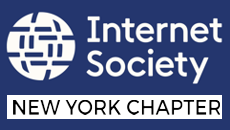 Geoff Huston’s latest Internet Society ISP Column examines the Australian scenario where, in the recent election, the vying parties plumped down on either side of the wired vs wireless question. He concludes that, just like the election, there is no outright winner.
Geoff Huston’s latest Internet Society ISP Column examines the Australian scenario where, in the recent election, the vying parties plumped down on either side of the wired vs wireless question. He concludes that, just like the election, there is no outright winner.
He notes the reality that while wireless IP service often actually costs less to provide, users are prepared to pay more for it, giving providers little incentive to invest in wire. But wireless bandwidth scalability is, ultimately, limited. What’s more its inherent unreliability is TCP hostile. However ubiquitous wireless service would be a lot cheaper to implement: $6B (AUS) vs $43B (AUS) for wired.
He then gets to the big question, which all countries including the USA are having to address, namely how much of the taxpayer’s money is worth expending, and to what effect:
Where should public funds be spent? On a comprehensive revamp of the wired access network, replacing the aged copper pair telephone network with a highly capable fibre optic network? Or on improving access in those areas where the copper pair network simply cannot support high speed access by public investment in wireless infrastructure?
In trying to answer this question, we return to a persistent theme in the area of public communications infrastructure. What’s the role of public capital investment and how is that balanced against the role of private capital investment? Is it possible for private investment to fulfill the entirety of a public agenda? Given that a capable, cost efficient and effective public communications infrastructure that encompasses an entire national constituency is seen as a core deliverable of any national communications policy regime, then how is this best achieved today?
To move back from generalities to the specifics of this broadband investment choice, is it realistic to expect that we have further decades of useful life from an already ageing copper pair infrastructure? As a consequence, should current public investment focus on current gaps in the national infrastructure, using a relatively cost effective approach of plugging these gaps using wireless infrastructure where the copper network is simply inadequate, and leave the remainder of the network in situ, as being adequate for the moment Or should we leave such wireless infrastructure investment to private enterprise, given that this technology is enjoying strong consumer attention and there is a continuing investment in wireless infrastructure by the industry actors. Instead, should a public investment program focus on a longer term national program of replacing the copper loop with a comprehensive fibre optic network? From such a longer term perspective perhaps the NBN is the better approach, as we need to concede that the level of investment required for a national very high speed access infrastructure in a fibre access network is probably well beyond the scope of private capital works investment. So far all that the industry has achieved in this space has been the rewiring of the CBDs in the major cities, while the upgrading of remainder of the network has been effectively ignored. It appears that this is, like many major infrastructure projects in the past, one that properly sits in the realm of a public investment program, in the same way that we’ve made investments in national road, rail and shipping infrastructure in the past.
Like this:
Like Loading...
 Today, August 20 2018, at 07:00 UTC Internet Australia and the Internet Society present an Experts Session on Encryption at Parliament House in Canberra. During the session, international and local experts from across the field will discuss the technical aspects of encryption and digital security. They will explain how encryption is used to secure communications and data, and explore its role in the Australian digital economy. Experts will also discuss the risks associated with attempting to provide exceptional access to encrypted systems i.e. backdoors. Speakers: Keith Besgrove, Internet Australia; Dr. Vanessa Teague, University of Melbourne; Dr. Hal Abelson, MIT; Christine Runnegar, Internet Society; Linus Chang, Scram Software; Mark Nottingham, IAB & IETF; Martin Thomson, Mozilla & IAB; Peter Tonoli, EFA, Internet Australia. The session will be webcast live on the Internet Society Livestream Channel.
Today, August 20 2018, at 07:00 UTC Internet Australia and the Internet Society present an Experts Session on Encryption at Parliament House in Canberra. During the session, international and local experts from across the field will discuss the technical aspects of encryption and digital security. They will explain how encryption is used to secure communications and data, and explore its role in the Australian digital economy. Experts will also discuss the risks associated with attempting to provide exceptional access to encrypted systems i.e. backdoors. Speakers: Keith Besgrove, Internet Australia; Dr. Vanessa Teague, University of Melbourne; Dr. Hal Abelson, MIT; Christine Runnegar, Internet Society; Linus Chang, Scram Software; Mark Nottingham, IAB & IETF; Martin Thomson, Mozilla & IAB; Peter Tonoli, EFA, Internet Australia. The session will be webcast live on the Internet Society Livestream Channel.


Reply